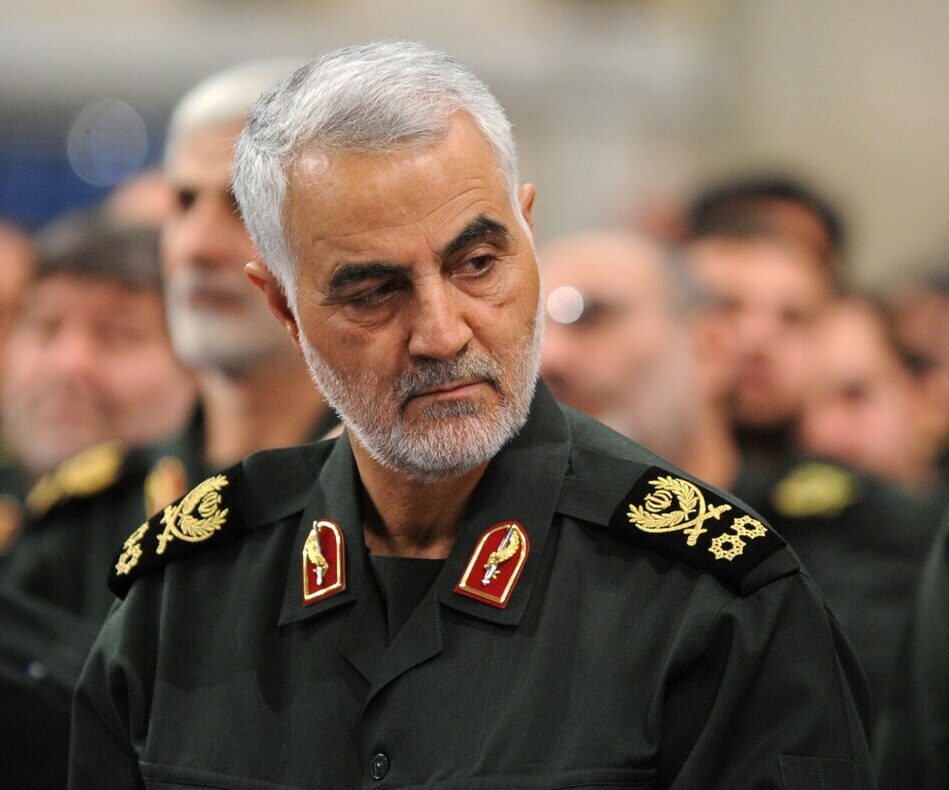Iran Quds Force Commander 2024, Commander of Iran’s Quds Force is ‘in good health’
Iran Quds Force Commander 2024 : One of the security officials said Mr Qaani was in the southern suburbs of Beirut during an attack last week, known as Dahiyah, that targeted senior Hezbollah officer Hashem Safieddine. The top commander of Iran’s Quds Force, Esmail Qaani, is in ‘good’ health, the force’s deputy commander Iraj Masjedi said on Monday, after Iranian security sources told Reuters that he had not been contactable since last week’s attack on Beirut.
“He is in good health and carrying out his activities. Some people are asking us to issue a statement… there is no need for that”, Masjedi was quoted as saying by state media, in reference to Qaani. One of the officials who spoke to Reuters said Qaani was in the southern suburbs of Beirut during an attack last week, known as Dahiyah, that targeted senior Hezbollah officer Hashem Safieddine. The official said he was not meeting Safieddin.
Who is Ismail Kani? Iran’s Quds Force commander reported missing after Israel’s attack on Beirut
Esmail Qaani, 67, has been a key figure in Iran’s military strategy since taking command of the Quds Force after the death of his predecessor, Qassem Soleimani, in January 2020. Soleimani, who was killed in a US drone strike in Baghdad, was a hugely influential figure in the Middle East who commanded respect from Iran’s allies, including Hezbollah, Iraqi Shiite militias and the Houthis in Yemen. However, Qaani’s leadership has been less prominent, with analysts believing he has not maintained the same level of ties with Iran’s regional allies.
Unlike Soleimani, who was often photographed on the front lines of fighting in Iraq and Syria with Tehran-backed militias, Qaani has kept a much lower profile, holding meetings in private and away from the public eye. Iran Quds Force Commander 2024 His leadership has coincided with a surge in Israeli airstrikes targeting Iranian proxies, including Hezbollah and other paramilitary groups. Qaani’s military career began in the 1980s during the Iran-Iraq War, where he fought for the Revolutionary Guards. In 1997, when Suleimani took over as the chief commander of the Quds Force, he became deputy commander.
Qaani’s role within the Quds Force involved overseeing operations beyond Iran’s eastern borders, particularly in Afghanistan and Pakistan. Unlike Suleimani, Qaani does not speak Arabic, which has further limited his ability to establish strong ties with Arab militias, particularly those in Iraq and Lebanon. Iran Quds Force Commander 2024 When Qaani took command of the Quds Force, he vowed to continue Suleimani’s mission of driving US forces out of West Asia. “We promise to continue the path of martyr Suleimani with the same force… and the only compensation for us will be the removal of the US from the region,” Qaani said in a statement broadcast by state radio ahead of Suleimani’s funeral in Tehran.
Iran’s silence and media speculation
While Iranian media remains silent on Qaani’s fate, speculation continues to grow. Some reports from Israeli outlets, including N12 and Channel 12, suggested that Qaani may have been injured or killed in the attack. Iran Quds Force Commander 2024 Lebanese officials have reportedly confirmed his death, but Israel has not officially confirmed this information. Saudi media has also suggested that Iran may have killed Qaani on suspicion of collaborating with Israel’s Mossad.
Asked about the possibility of Qaani’s death, Israeli military spokesman Lt. Col. Nadav Shoshani said during a briefing with reporters, “When we get more specific results from that attack, we will share it. There are a lot of questions about who was there and who was not.” He confirmed that Israeli forces had attacked Hezbollah’s intelligence headquarters in Beirut last week, but did not provide detailed information on casualties.
Implications of Qaani’s disappearance
If Qaani’s death is confirmed, it would be a major blow to Iran’s influence in the Middle East. The Quds Force, led by Qaani, plays a key role in coordinating Iran’s relations with its paramilitary allies, including Hezbollah in Lebanon, the Houthis in Yemen and Shia militias in Iraq. Losing Qaani could weaken Iran’s ability to manage these alliances, especially at a time when tensions between Israel and Hezbollah are rising.
Israel’s military has been conducting intense operations in southern Lebanon, with the Israeli Defense Forces (IDF) claiming to have killed more than 400 Hezbollah fighters since the start of ground operations in the region. Israeli military spokesman Rear Admiral Daniel Hagri confirmed in a televised briefing that 30 Hezbollah commanders were among those killed in the strikes.
“Since the start of the (ground) maneuvers, the army has killed nearly 440 terrorists from the ground and air,” Hagri said. Iran Quds Force Commander 2024 In one of the most powerful raids, Israeli air strikes hit Beirut 11 consecutive times, including targeting Hezbollah’s intelligence headquarters. Qaani’s disappearance has raised uncertainties about Iran’s ability to maintain its regional influence, especially as it faces growing pressure from Israeli military operations.
Tensions are rising in Lebanon
The recent Israeli airstrikes are part of a broader military effort aimed at reducing Hezbollah’s influence in Lebanon and curbing Iran’s growing presence in the region. Hezbollah, a key ally of Iran, has been central to Tehran’s strategy in West Asia, acting as a proxy force in Lebanon and Syria. The elimination of key figures such as Nasrallah and, possibly, Qaani could alter the balance of power in the region.
Iran’s Revolutionary Guards have already suffered significant losses, including the death of Brigadier General Abbas Nilforoushan, who was reportedly killed with Nasrallah in the bunker during the September 27 attacks. If Qaani’s death is confirmed, it could further inflame the conflict, with experts warning of a prolonged period of instability in the region.
The situation remains volatile, as the Israeli military continues to assess the impact of its attacks on Hezbollah’s leadership. For the time being, Ismail Kani’s fate remains uncertain, leaving a serious void in Iran’s regional military operations.

